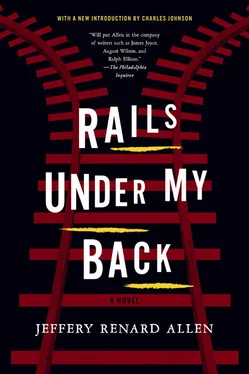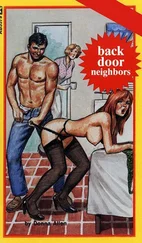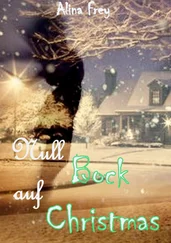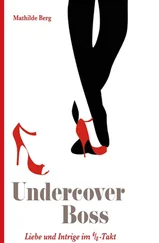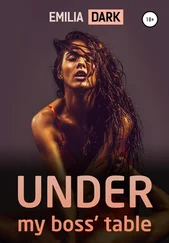Dave say you had really long hair back then.
Yes, down to my ankles.
Bird wings.
I had to cut it when I started to work in the factory. Your hair get caught in one of those machines.
Couldn’t you just wear a cap?
All that hair?
Late in life (at age forty? forty-one?), she had met And in Houston and married him soon after. They came to the city together. When the gettin was good, she found a job in the war (car?) factory, while the draft shipped And overseas. He speak Japanese, Dave said. Shit, I know a word or two but that nigga sound like he born a Chink. War done, he found work as a Pullman porter. The marriage lasted five years. But the divorce (separation?) didn’t end them. And drifted into town like smoke. Aw, girl, what you doing up in that bed? Every time I come to see you, you up in that bed. How I’m gon look at yo butt?
Gon way from me, mister.
Clicked open a gold initialed (AA) cigarette lighter and lit a sweet-smellin cigar, squirting smoke out of his hair-filled nostrils. (Did the hair filter the smoke?) Silk monogrammed (AA) socks, gleaming alligator shoes, shiny three-piece (his forefinger hooked in the vest), polka-dot tie with diamond stickpin (AA), sparkling and blinking like Christmas lights, blocked Dobb, cocked over one eye — he reached up a hand in salute, taking the hat edge onto his long-tipped fingers, then bringing the hat into the circle of his lap — initialed (AA) silk handkerchief, big sparkling cuff links — Hatch teased him, What’s those, handcuffs? screaming the words wet in his face, as he was hard of hearing; He listening to the sound of the railroad, Beulah said — and a big cloisonné horseshoe ring (he liked the races, horse and dog) that glittered and wavered. Always clean as a broke-dick dog, Beulah said, through the worn threads of her voice, plenty of jack. Come here, little nigger, And said, worrying the railroad watch attached to his vest from a heavy silver chain. Hatch came. And put the big watch in Hatch’s hand. Hatch examined it like some fossil. Engraved on the back, a double track between two crossed semaphores, stop signal. You know how niggas is. Niggas loaded everything into they steamer trunks. No engine, I don’t care how powerful, could move that train. We had to open up some of them trunks. See what inside. One nigga got his bathtub in there. One got his stove. Another got his horse in there. Another his house. Got good tips, And said, but some white folks cheaper than Jack Benny. Give you a quarter or a cigar and pect you to do a song and dance.
Divorced (separated?), Beulah moved to Decatur and found a job in the local dog-food factory. Purchased a two-story (wood and brick, green and white) house with a length of green lawn where Hatch and Jesus could wrestle, chase Jacky and Lil Judy, and enough yard for a grove of pear trees. Her second husband, Mr. George, a co-worker at the factory— I knew him before we decided to jump the broom —was as plain as And was colorful. The light of the body is the eye. Overalls and snuff. Smoking his pipe — snuff and a pipe? — under the spreading pear trees. (Hatch could not recall a single instance of Mr. George speaking, the tucked pipe clogging back the words.) Wearing a basin-shaped hat and a black mortician suit on his way to church each Sunday. When she had the strength, Uncle John and Lucifer would walk her — one of them could have carried her without missing a breath, but she insisted on Walking on my own two feet. That’s what God give them to me for. Last person who carried me was And. Over the threshold. Mr. George too old to carry anybody and I don’t plan to marry no more —to the front porch, slowly, every inch of skin shaking with the effort as if she would crumble. The two of them, Beulah and Mr. George, the unlit pipe tucked between his lips, sitting in the cushioned rocking chairs on the screened porch, not a single word from the man, nothing escaping past the plug of pipe. And when And came to town, the three of them sitting on the long, noisy rocker/glider, where summer voices floated around them and fireflies flickered and faded at night. That was how Mr. George died one evening as the sun turned copper, heart exploding inside his chest, Beulah hearing the creaking rocker stop, seeing the angles of the chair freeze in place and blood thread from his nose.
Sugar. Hypertension. Heart attacks. Two operations to cut out the cancer. But I’m still here. Death try to sneak up on me when I sleep. But I go when the good Lord call me.
A wedge of light fell outward from the door. Found glints in her hair.
You hear bout people falling off a mountain and survivin wit nothin but a scratch, then you hear bout people dyin from a bump on the head. You go when it time fo you to go.
Her voice was soft and secret, almost a whisper, as if she were talking to herself.
When St. Peter say Come home, better put on yo runnin shoes.
She had outlived her one brother and many sisters (she killed one herself, when she was a girl, dropped the baby and busted its skull), some — Sam, Koot, Big Judy — whom Hatch had seen, heard, and touched, found various ways to die — though she was the oldest child.
Beulah, you the firstborn?
No, the second. The first baby, a lil baby girl, drowned on Mamma’s milk.
All that remained, silent photographs, shadowy names, and inscrutable memories. Her family originated somewhere near Houston (’Sippi, not Texas), and she knew little more than that, knew nothing of her grandparents, so the family lineage began and ended at her maiden name, Griffith. (Some even spelled the family name differently. Griffis.)
Now they talkin bout men on the moon. Life motionless but alive, Beulah spoke between wheezes, cast talk in his teeth, a film of mist softening every word, the voice weak.
They open a new highway, let it roll wide the earth, shake trees from their roots. Birds leave the edges of the forest, abandon the highway, carry pieces of the moon between their claws. Their sharp wings cut through the clouds. They fly up to mountaintops and from the highest peaks take in the widest landscapes. Foresee the space age.
If God wanted men on the moon he woulda put them there. I ain’t gon believe no men on no moon til I go there myself.
Beulah, they had it on TV. In the newspaper.
I don’t have no truck with such nonsense. Them white folks think they got the sun and the moon locked inside a briefcase. But there are some things the Lawd wants all folks to know, some things jus the chosen few to know, and some things no one should know.
She could tell stories, though Sheila didn’t want to hear them— Hush; Beulah, don’t go digging up the past; I been through enough in my life; that was then, this is now —though Gracie stiffened at the voice, closed her eyes against remembrance, though Beulah took so long between words you didn’t know if she had finished talking or was only resting, and you listened attentively, clutched every kernel from her throat, for she was willing to pass on greasy-fingered tales. Tales like houses, yards, gardens, other worlds, spaces to inhabit, hand-me-downs, generational clothes.
Thirteen of us in that shotgun shack, fifteen cluding Mamma and Daddy.
Hatch listened.
Fifteen. She watched him from across the lamp. People today don’t know nothing bout being crowded. Fifteen of us. Fifteen. Thirteen—
Thirteen.
— chillun. The five oldest chillun stay and help Mamma and Daddy work the farm. The five younguns go to the fields. Crawlin through them fields on yo hands and knees. Tie some cloth patches cross yo knees so they won’t wear down.
Talk bout hard times. People today don’t know nothing bout no hard times. There was this one bad season, real bad, bad harvest. Our dogs Blackjack and Redman howled all day and night, bellies hanging off them like empty sacks.
Читать дальше
